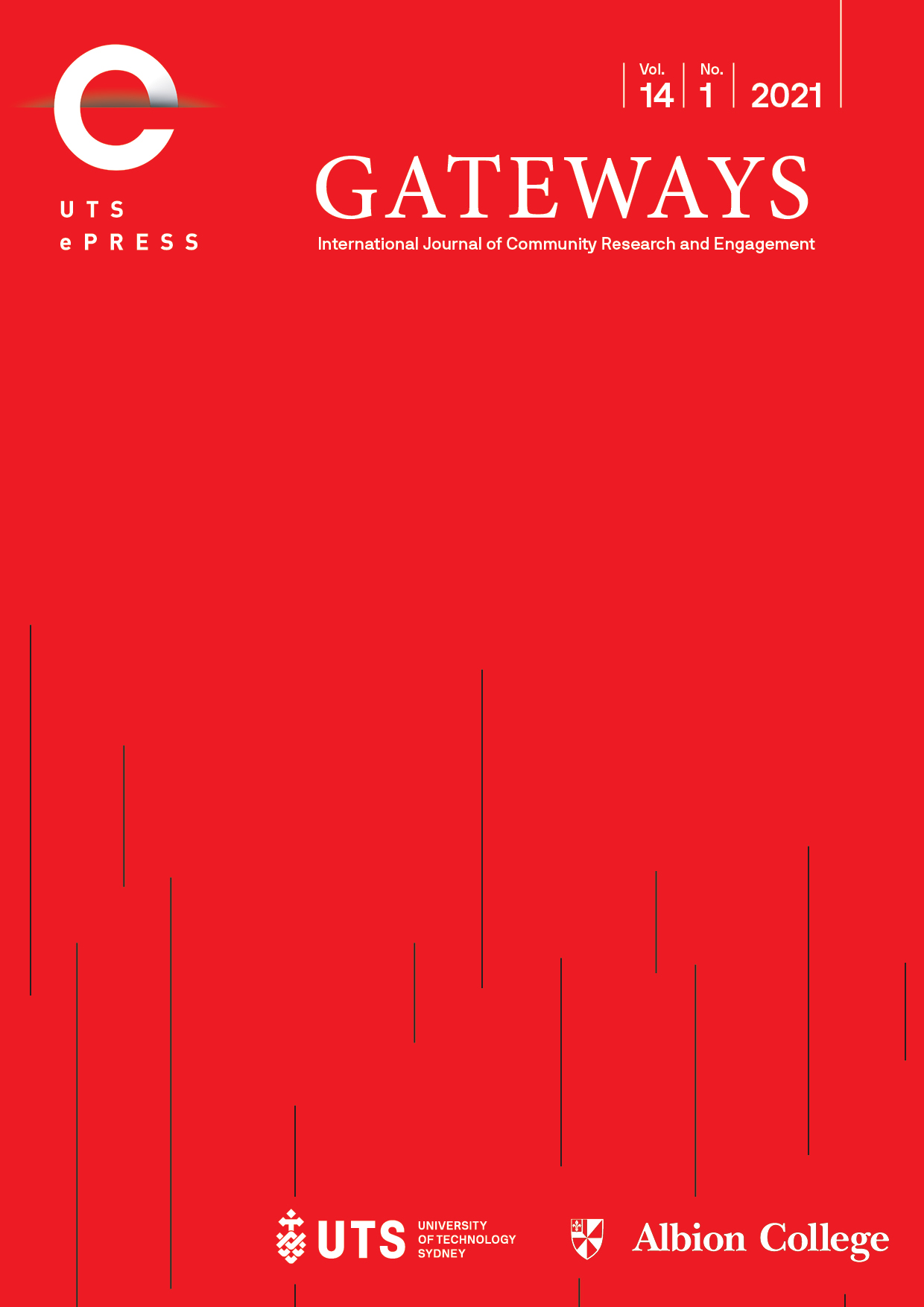Undergraduate students’ perceptions of community engagement: A snapshot of a public research university in Canada
Main Article Content
Abstract
Students who participate in regular community engagement (CE) often experience benefits in different areas of their lives. Many academic institutions have implemented action plans to increase CE within the student population. At the University of Calgary, Canada, this is done primarily through its broader Eyes High strategy. As there remains a gap in the literature about students' perceptions of CE and their awareness of university CE strategies, this study aims to identify undergraduate students’ awareness of the Eyes High strategy, attitudes towards and levels of engagement, and challenges and potential methods to increase CE participation. Data was collected through a voluntary online survey (n=528). Participants were recruited through posters, social media, online faculty platforms and by faculty members. Survey results indicated students lacked knowledge regarding the Eyes High strategy. It was noted that students’ knowledge, attitudes and practices of CE increased as they spent more time at the university. The top perceived challenges to CE were lack of time, accessible information, support and incentives. To increase accessibility and student participation, we suggest introducing the Eyes High Strategy and CE activities early to the undergraduate population through workshops, credit-based courses and/or professional development requirements. Our data suggests that students are not well informed about the Eyes High strategy. There is thus a need for the university to build a campus-wide, student-informed initiative to proactively engage students. This research will serve as a gateway to further explore communicative methods that might better convey university priorities to students.
Article Details
Issue
Section
Authors who submit articles to this journal from 31st March 2014 for publication, agree to the following terms:
a) Authors retain copyright and grant the journal right of first publication with the work simultaneously licensed under a Creative Commons Attribution License that allows others to share and adapt the work with an acknowledgement of the work's authorship and initial publication in this journal.
b) Authors are able to enter into separate, additional contractual arrangements for the non-exclusive distribution of the journal's published version of the work (e.g., post it to an institutional repository or publish it in a book), with an acknowledgement of its initial publication in this journal.
c) Authors are permitted and encouraged to post their work online (e.g., in institutional repositories or on their website) prior to and during the submission process, as it can lead to productive exchanges, as well as earlier and greater citation of published work (See The Open Access Citation Advantage Service). Where authors include such a work in an institutional repository or on their website (ie. a copy of a work which has been published in a UTS ePRESS journal, or a pre-print or post-print version of that work), we request that they include a statement that acknowledges the UTS ePRESS publication including the name of the journal, the volume number and a web-link to the journal item.
d) Authors should be aware that the Creative Commons Attribution (CC-BY) License permits readers to share (copy and redistribute the work in any medium or format) and adapt (remix, transform, and build upon the work) for any purpose, even commercially, provided they also give appropriate credit to the work, provide a link to the license, and indicate if changes were made. They may do these things in any reasonable manner, but not in any way that suggests you or your publisher endorses their use.
For Volume 6 (2013) and before, the following copyright applied:
Articles published by UTSePress are protected by copyright which is retained by the authors who assert their moral rights. Authors control translation and reproduction rights to their works published by UTSePress. UTSePress publications are copyright and all rights are reserved worldwide. Downloads of specific portions of them are permitted for personal use only, not for commercial use or resale. Permissions to reprint or use any materials should be directed to UTSePress.
